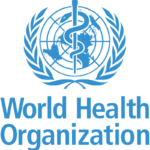It is always a breaking point that is required. Not long ago in France it was enough that the government raised a petrol tax by a small amount to spark social unrest: the famous Yellow Vests movement. In Germany the bizarre decision taken by the Merkel regime to let in a million or so aliens induced citizens who were concerned about their country to found the Alternative fur Deutschland party. Recently, we have been witnessing the creation of Widerstand 2020 (Resistance 2020). What was the new civil movement occasioned by? By the restrictions imposed upon Germans because of the Corona pandemic, courtesy of the WHO. The party was established by Bodo Schiffmann, a physician, together with Ralf Ludwig, a Leipzig lawyer and Victoria Hamm, who introduces herself as just a human being. The trio became enraged by the panic that was caused by the authorities and by the fact that the government used the alleged epidemiological danger to suspend some of the constitutional rights, which in turn enabled the officials to abuse their power.
Widerstand 2020 has its website, where anybody interested can learn about who they are and what they strive after. They say to have tens of thousands of supporters, a claim that for obvious reasons cannot be easily verified. Judging by the reaction of the powers that be, they may be gaining in popularity and surely they must have hit the German establishment where it hurts because the people who are habitually at the establishment’s beck and call – all manner of journalists, scientists and experts – began mounting a counteroffensive, using the usual dirty tricks: dragging the opponent through the mud by a string of strongly negatively-charged associations. Widerstand 2020 can regard it as considerable success: The flak only gets heavy when you’re over the target.
Among the many mass media outlets, the Deustchlandfunk offers on its website an anonymous and lengthy text whose task it is to inform the readers about the evil and/or folly that radiates from Widerstand 2020, so beware. The tactics that the anonymous writers of the article who tout themselves as enlightened, reasonable researchers are the one used by former communist regimes. You do not attempt to kill your opponent directly: you rely on the ricochet effect. The founders of Widerstand 2020 cannot sue their accusers for calling them racist or anti-Semites because the movement’s accusers have never said that Widerstand 2020 members are racists or anti-Semites. The deutschlandfunk.de apparatchiki merely asked experts who deal with the problem of racism and Antisemitism what they thought about Widerstand 2020 and they merely mentioned that their interlocutors – authorities on social ills – professionally deal with the phenomenon of racism and Antisemitism.
Continue reading
















